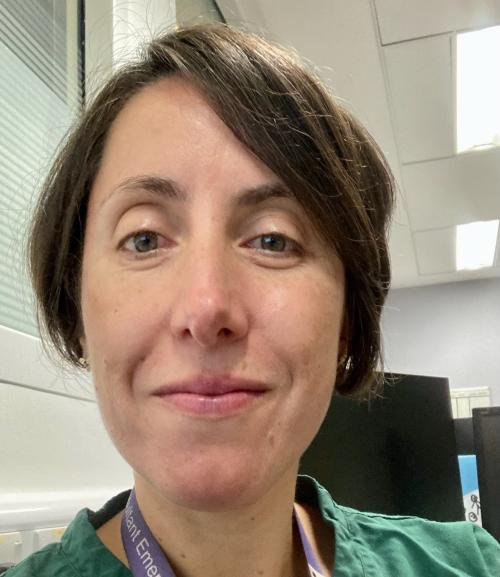
This article is part of our Plastic Free July series, in which we are highlighting North Bristol NHS Trust (NBT) staff members and teams doing things a little differently in order to reduce our plastic waste.
By nature, emergency departments are fast-paced environments. They’re also areas with high rates of single-use plastics, due to the need for infection control. Trying to encourage any kind of behaviour change or culture change is difficult for this reason. But it is possible, as NBT’s Emergency Department has proved.
They were recently awarded a bronze accreditation as part of Royal College of Emergency Medicine’s Green ED awards program. The program rewards emergency departments taking steps to implement more sustainable ways of working. There are three different levels of accreditation – gold, silver and bronze – and different activities that hospitals need to implement to qualify for an award.
Emma Carver, a consultant at Southmead’s emergency department, has always been a vocal advocate for sustainability, in both her personal and professional life.
“I have real concerns for the climate and what's going to happen, and I suppose that covers all areas, including biodiversity and plastic pollution. I'm also a parent, worried about my children, and what the world will look like for the next generation,” she said.
“I suppose I was always thinking about how to bring this into my work, just because I feel you can have so much more influence potentially at work.”
An opportunity to take action came through her colleague Charlotte Riley, an ED doctor who had links with the Royal College of Emergency Medicine (RCEM) which had a specialist group dedicated to the environment. When Emma and Charlotte realised they had a shared interest in promoting sustainable practices at work, they decided to get NBT on board.
“We became a pilot site for the RCEM Green ED award… we helped develop the program by being a pilot site.”
To qualify for the bronze award, NBT had to implement several new ways of working, such as creating a green group, encouraging people to turn down brightness on monitors and switching to cups made from recycled paper in the waiting room.
Emma said it could sometimes be challenging trying to create changes in behaviour amongst her colleagues due to the fast-paced nature of their jobs.
“You can't say, ‘Hey, everybody let's down tools for a minute and just have ten minutes off the shop floor to talk about recycling or what the carbon footprint of this item is’ because that just doesn't happen.”
“The main thing is the people who are making the change, don't see any tangible benefit in that moment, for the patient in front of them, do they? That's the problem with going plastic free - often it's harder and sometimes more expensive.”
The NHS is currently responsible for 4-5% of the UK’s total carbon emissions.
In 2020, the NHS released its roadmap for becoming the world’s first net zero health organisation by 2045.
The roadmap requires each NHS trust to create its own Green Plan to meet this goal.
NBT has set itself the goal of being net zero by 2030.
Learn more about our Sustainable Development Policy.
